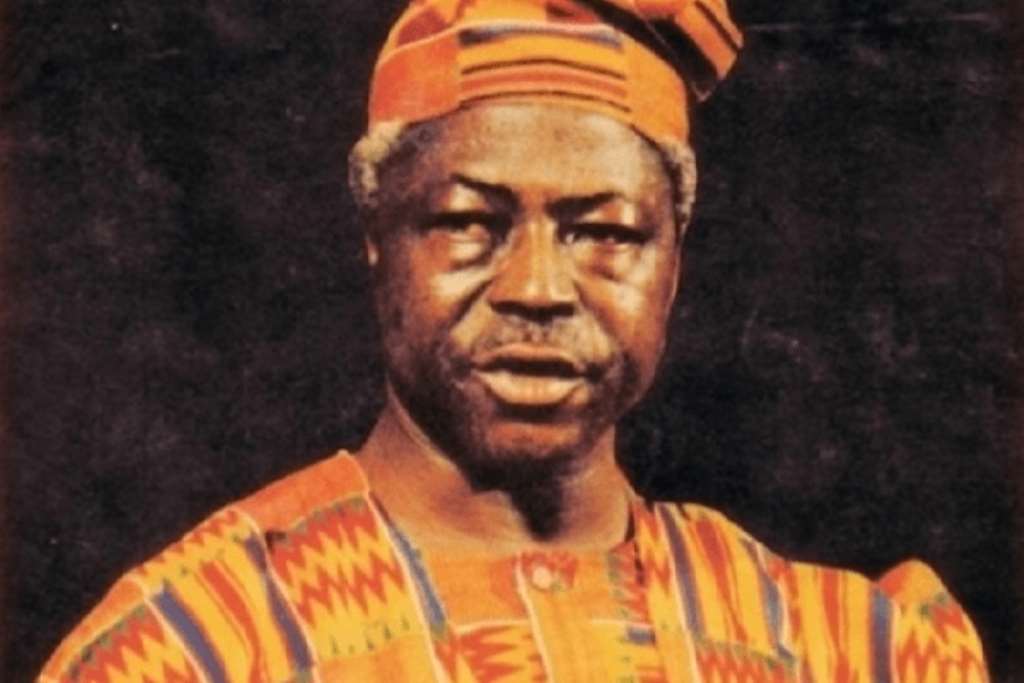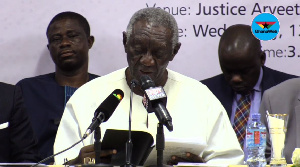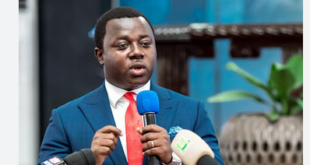Ghana’s constitution offers no second chance to presidents who have served their two terms.
But former President J.A. Kufuor says if he had another shot at the Presidency, he would put his political surgeon’s knife to work on the 1992 Constitution.
It was a blunt admission that he had his hands tied by a constitution that although gave him enormous power, things did not turn out exactly as advertised.
Walking on memory lane on Asaase FM’s Sunday Night, former President Kufuor said the four-year tenure gave little room for performance.
While he insisted that an extension of the tenure should be the peoples’ mandate he also held the views that “four years is too short” for the President of developing country handicapped with developmental drawbacks.
With a plethora of promises to honour when he won power, Mr. Kufuor, who led the country from January 7, 2001, to January 7, 2009, said he came to meet an empty coffers.
“You come and then meet an empty chest. No money,” he recalled of the major drawback.
The problem is also compounded by the inadequate experience on the part of appointees and meeting the demands of the constitution including balancing the ethnic diversities.
Many people wouldn’t have had exposure. In terms of administration, finance, management and we are multi-tribal and cultural. How you work to make a fine mesh of society and building a fabric that will be strong to support governance, it takes time.
Four years, he argued, did not offer enough time to allow the civil service and the political appointees to know each other.
“You bring such people in, they haven’t worked with civil service that have been there before independence and full of experience but is always laid back.
“It is the political leadership that must use the civil service to formulate policy that would be approved by Parliament.
“One year settling in there and composing the Cabinet is no joke,” he said.
He said an extra year would be ideal to get a grip on the governance structure including finance, civil service, military and police.
“Five years is ideal. You use the first year for the government to settle in and take charge over the agencies I have spoken about and start the policy formulation,” he said.
“A year’s extension, he believed will also inure to the legislature.
After using the first year to settle in, the second year would have been the big take off”, he said.
The former president has never shied away from stating that position. In his last address in parliament in February 2008, he expressed similar views.
The 1992 Constitution also compels the President to pick half of the country’s ministers from Parliament.
That provision in Article 78 (1) which hybridized the UK’s Westminster system with the American system has been blamed for turning the country’s Parliament into a rubber stamp for the executive’s decisions.
Former President Kufuor agreed, insisting the current position of the law did not augur well for strict separation of powers.
“Why should a minister who is part of the executive manning a busy ministry, be saddled with overseeing the work of the executive? It is really a contradiction. I’m strictly for strict separation of powers. That bit of the constitution, if I have my way, I’ll amend it to put the executive on one side and the legislature on one side.
He said his preference is the 1979 constitution under which he was an opposition Member of Parliament (MP).
But that provision in the constitution which barred the President from selecting MPs as ministers also had its downside.
In 1979, the Limann administration’s first budget was rejected by Parliament, with members of the Majority Peoples’ National Party walking out.
While many believe the third Republican Parliament was the most independent in Ghana’s history, others held the view that the Majority MPs were fighting for their personal interest as the MPs realised that their colleagues who lost elections and were appointed ministers had better conditions of service than the lawmakers.

In his last state of the nation address, he shared similar views. In the address that presented the achievement and challenges of his tenure, former President Kuffour called for constitutional review and mentioned some of the challenges of Article 78(1) as some of his reasons.
He indicated that the provisions in Article 78(1) was tantamount to serving two different masters and not being loyal to any of them and added that it “contravenes the separation of powers as well as supervision and effective execution of work”.
But some constitutional experts believe the factors affecting the oversight role of the Parliament of Ghana apart from Article 78(1) include the Whip system and lack of competent research assistants for parliamentarians.
[The Ghana Report] Home Of Ghana News Ghana News, Entertainment And More
Home Of Ghana News Ghana News, Entertainment And More





